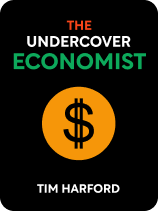
This is a free excerpt from one of Shortform’s Articles. We give you all the important information you need to know about current events and more.
Don't miss out on the whole story. Sign up for a free trial here .
What will be the future of globalization? Is it coming to an end or simply taking on a new form?
Some say that globalization is ending and that you only have to compare current economic and political conditions to those of the past to see the writing on the wall. Others argue that globalization is simply shape-shifting and that ideas and technology are driving its future form.
Read on to learn more about the debate over the future of globalization.
The Future of Globalization
Some people say that globalization is going the way of the dinosaur, while others argue that it’s not dying but transitioning into a new form. In this article, we’ll examine the future of globalization by first explaining what globalization is, some of its upsides and downsides, and why people either think it’s at its end or simply taking on a new life.
What is Globalization?
Globalization is the process by which people and goods move seamlessly across borders. Globalization is typically understood in economic terms, but it also includes the exchange of cultural ideas and traditions.
Pros & Cons of Globalization
According to Tim Harford’s book The Undercover Economist, much of the success of globalization is due to comparative advantage. Comparative advantage occurs when one group can make a product more efficiently than another group. Principles of comparative advantage highlight the positives of globalization. But globalization still has its skeptics. Mostly, skeptics focus on the arguments that globalization is bad for the planet and bad for the poor.
People who argue that globalization is bad for the planet list the following reasons for concern:
- Globalization creates a “race to the bottom.” The companies that can produce goods the cheapest are the only ones that succeed, and it’s easier to produce cheap goods with less stringent environmental regulations.
- The act of moving goods from place to place creates more pollution. This happens more in a globalized world.
- The economic growth that comes from globalization is bad for the planet because it necessitates building more polluting factories and more consumption.
Here are the reasons why each of these arguments is misguided, according to Harford:
- Most trade happens between rich countries that have similar regulations on pollution. Companies are playing on an even playing field. Additionally, any additional costs that come from government regulations on pollution are generally negligible. Most of the cost of producing a good comes from the cost of labor. When companies move, they almost always do so to find cheaper labor rather than to find less stringent environmental regulations. Additionally, protectionist policies like giving government subsidies can encourage pollution. To keep foreign goods, which are manufactured more efficiently, out of a country, the government essentially pays polluters to continue polluting.
- There is nothing that is uniquely damaging to the environment about crossing a national border. It is an environmental problem that more goods move further in a globalized world, but instead of cutting movement off at borders, governments should charge externalities inside and outside of their countries.
- The deadliest environmental problems, such as unclean drinking water, actually affect the poorest people in the world the most. Economic growth can help with these problems. As people become wealthier, they no longer have to rely on unsafe drinking water. Admittedly, there are some problems, like fumes from car exhausts, that get worse as people get a bit richer. But as they get richer still, they can start to afford to buy cars that don’t cause as much pollution. The bottom line is, it’s not worth keeping people in poverty to attempt to solve the environmental crisis. Plus, it’s not a binary equation, given that there’s no need to choose between one or the other. As discussed in the last answer, we can raise externality taxes and use those taxes to work on our environmental issues.
Next, we’ll take a look at two perspectives on the future of globalization.
Perspective #1: Globalization Is on the Decline
Some journalists, investors, and policymakers argue that there is no future for globalization, which means we’re currently at the end of the second great era of globalization. As evidence, they say conditions today closely mirror those that brought the first great era of globalization to a close—namely, the 1918 influenza pandemic and the outbreak of World War I. They contend that we’re confronting similar challenges:
- A years-long pandemic that’s revealed global supply chain fragility
- An ongoing war in Ukraine that’s resulted in the severing of economic ties between Russia and the West and global food and energy market disruptions
- A rise in populist politics
- Increased geopolitical competition between the U.S. and China
Perspective #2: Globalization Is Just Shape Shifting
Others argue that globalization’s been pronounced dead more than once—including after the 2020 outbreak of the Covid-19 pandemic, the 2016 Brexit referendum and the election of Donald Trump, and the 2008 global financial crisis—but that it’s still alive and kicking, just in a new form. Though we’re no longer pursuing globalization as aggressively as we have in recent decades, we’re by no means barreling toward total economic independence and isolation.
Some experts say that for globalization to truly come to an end, the U.S. would have to turn wholly against economic integration—which didn’t happen under former president Donald Trump and likely won’t under President Joe Biden. What’s happening, instead, is that the U.S. simply isn’t leading the push for greater globalization right now. And while this admitted leadership vacuum means that deliberate, coordinated efforts to expand globalization now and in the future have slumped, it doesn’t reflect the death of globalization itself.
In fact, experts say it would be nearly impossible for countries to fully decouple from one another at this point because:
- The benefits of scale and specialization are too great and the costs of reversing established economic structures are too high.
- It would be too hard to recreate the complex global value chains that produce most modern goods at a national level.
- Even if Western companies pull back from China, they’re less likely to bring production back home than relocate it to friendly lower-wage countries such as Mexico and Vietnam.
- Reshoring and insourcing are costly and risky (something the U.S. learned earlier this year during the baby formula shortage, in which it over-relied on domestic production. Resilience does come not from total self-reliance but from diversification and excess capacity.
With these realities as a backdrop, analysts argue that the future of globalization means shifting into different areas: Ideas now drive global interconnection, and international flows of data and intellectual property are breaking records. For example, between 2010 and 2019, the flows of services, international students, and intellectual property grew twice as fast as the flows of goods—a trend that’s continued through the pandemic.
Other experts assert that international trade is in fact blossoming: They say that we’ve entered a third wave of trade opportunities since the industrial revolution. In this wave, broadband internet has enabled “trade in offices,” which will permit growing numbers of people across the world to work from home. They say that in contrast with the two previous waves, this third wave has a greater possibility of flourishing in an unfettered way, as countries find it more difficult to control virtual trade than physical trade.

Want to fast-track your learning? With Shortform, you’ll gain insights you won't find anywhere else .
Here's what you’ll get when you sign up for Shortform :
- Complicated ideas explained in simple and concise ways
- Smart analysis that connects what you’re reading to other key concepts
- Writing with zero fluff because we know how important your time is







